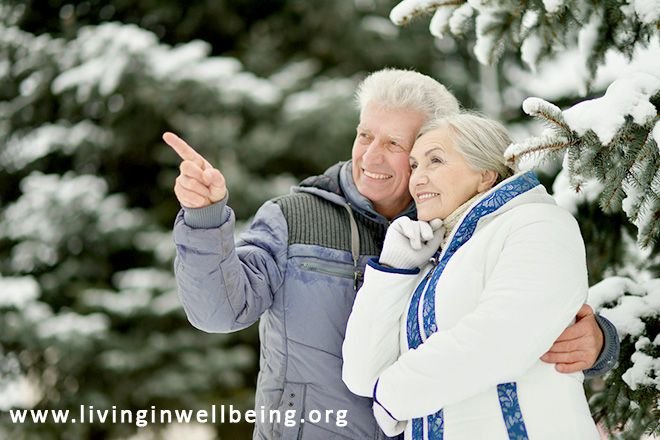
Have you ever considered the health hazards for elderly senior citizens during the cold months of winter? Many senior citizens travel to warmer areas of the country to live during the winter because they can't deal with the cold. But there are others who must deal with the weather conditions and the freezing temperatures no matter how cold it becomes. These are the senior citizens who can be most at risk of becoming injured or ill during the wintertime.
Senior adults that find they must deal with harsh weather conditions should consider these 4 healthy tips:
1. It is important to understand hypothermia
Hypothermia is a condition that causes a person's body temperature to drop, abnormally low, often to a dangerously low-temperature level. Hypothermia can be fatal and you should be aware of the symptoms:
Excessive shivering
Feelings of confusion
Feelings of sleepiness
Loss of energy
Cold skin, which has an ashy or pale coloring
Slow breathing rate g. Reduced heart rate
We should understand that the problem dementia is not at all a disease entity, but it denotes a combination of mental and physical symptoms that may be caused by various other systemic diseases. Many of us have heard of Alzheimer’s, which is the most common cause of dementia, but there are also others, such as vascular dementia.
2. It is important to understand frostbite
Frostbite is a condition where a person's skin is exposed to the cold and is severely damaged. When the skin is damaged it can go all the way to the bone. When this happens, it can lead to a loss of limbs. The most affected areas of the body for frostbite are the ears, nose, cheeks, fingers, and toes.
When the weather conditions are very cold, senior adults should protect themselves. Here are some protective measures they should consider:
Always wear another layer of clothing, coat, and gloves, socks, and shoes when it becomes necessary to go outdoors. Return indoors immediately if your skin starts to turn red or turns dark or begins to ache. This could be a sign of frostbite.
Remove shoes immediately after entering the home from the wet, cold snow outdoors. When the snow melts in the warm home, it will leave puddles of water in various places, which would be slippery and could cause a person to fall and become injured.
Exercise is very important for senior adults as it helps the muscles to remain strong and flexible. It also helps with balance and coordination and helps to reduce the risk of injury.
3. Ensure that your winter appliances are in good condition
Winter cold is damaging to anyone's health, and it is especially dangerous to seniors. If a heater breaks down for even a few days, the consequences could be dangerous, and even tragic. Before the cold weather attacks in full force, do a thorough check of all cold-weather appliances such as stoves and heaters. Also, consider having a few small space heaters set aside in case the house's main heating system experiences problems.
4. Use a medical alert system
Ice and winter conditions mean that more accidents are likely to happen in your home, and many emergencies such as failing heating systems or electricity can happen, requiring a senior to get quick help. A medical alert system consists of a base unit and a button worn around the neck or wrist and can provide seniors a way to contact emergency services, family members, or home repair professionals immediately. An elderly individual need only to press the button they're wearing, and the button communicates with the base unit, contacting a team of emergency responders who can connect the senior to someone that can help them.
We must all prepare for the winter months of snow, sleet, and freezing temperatures. Even though it is difficult for all of us to plan ahead and take steps to protect ourselves, our senior citizens are the most vulnerable. These individuals need a little extra attention to help keep them safe and warm during the long, cold days of winter.
Article Contributed By
Jane Byrne has been working in the care industry for 5+ years as a project coordinator. She regularly blogs about both the personal and practical challenges of caring and is always actively working on producing informative content. Jane is currently writing for FirstCare.












